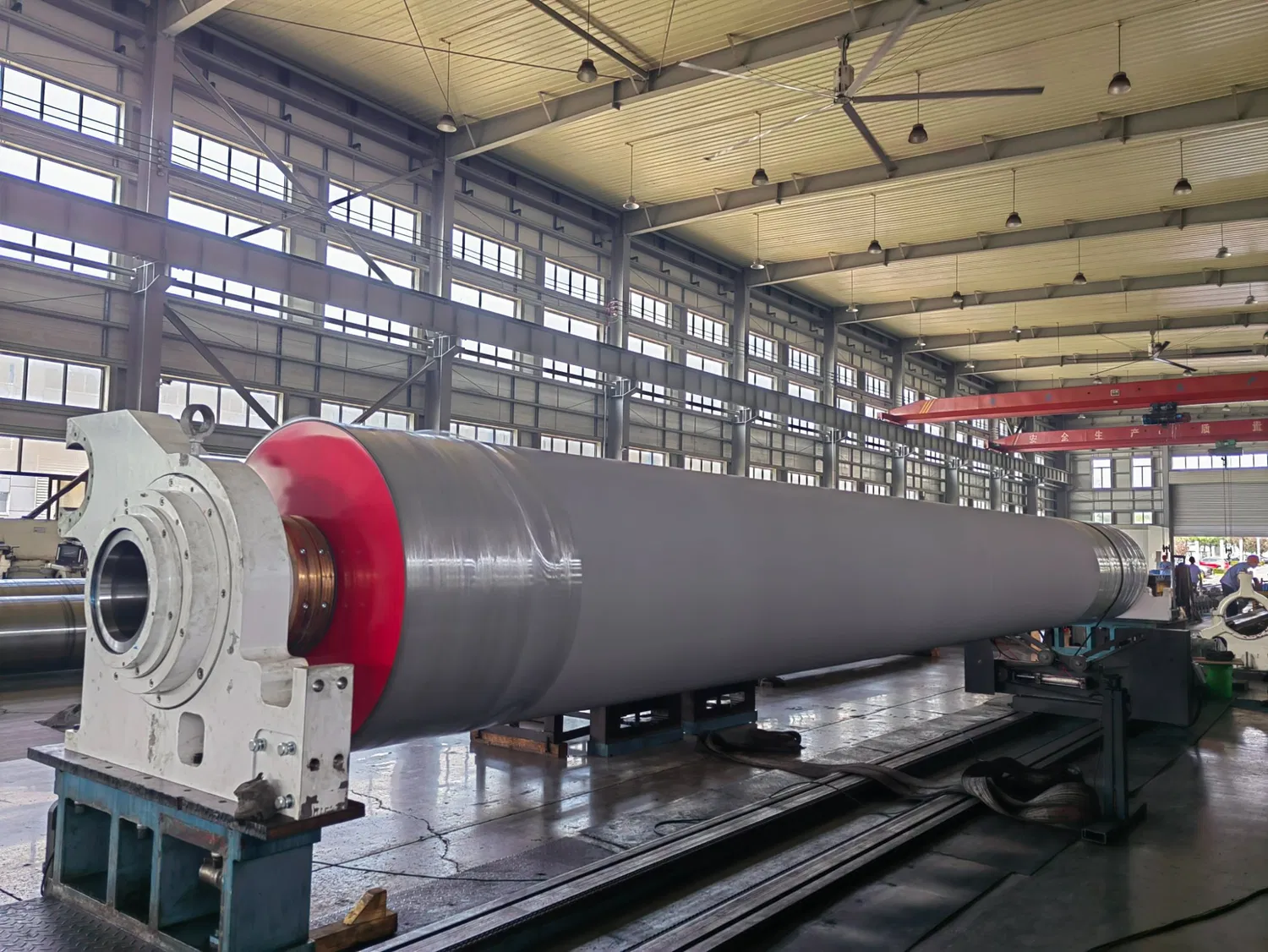The process of dewatering in papermaking is crucial for achieving desired sheet properties and overall production efficiency. Removing water from the paper web efficiently and effectively is a constant challenge, and stone rolls play a vital role in meeting this challenge. These specialized rolls utilize the unique properties of granite or other hard, smooth stones to enhance water removal during the pressing stage of paper production.
Stone rolls are typically positioned in the press section of a paper machine, working in conjunction with felt rolls. As the paper web passes between the stone roll and the felt roll, the immense pressure applied forces water out of the sheet. The incredibly smooth and hard surface of the stone roll allows for efficient transfer of water into the felt, minimizing rewetting of the paper web. This superior water removal capability contributes to improved sheet dryness, leading to significant energy savings in the subsequent drying section.
One of the key advantages of using stone rolls is their inherent resistance to wear and tear. The extreme hardness and durability of the stone ensures a long lifespan, reducing downtime and maintenance costs. This longevity is especially important in the demanding environment of a paper machine, where rolls are subjected to constant pressure, heat, and moisture. Furthermore, the consistent surface properties of the stone roll contribute to uniform pressing across the entire paper web, resulting in a more consistent product.
The effectiveness of stone rolls in dewatering is further enhanced by their thermal properties. Granite, for example, possesses excellent thermal conductivity, facilitating heat transfer during the pressing process. This heat helps to evaporate some of the water within the paper web, further contributing to improved dryness. Moreover, the consistent temperature of the stone roll helps maintain a stable pressing environment, reducing the risk of sheet defects and variations.
Compared to traditional press rolls, stone rolls offer distinct advantages in terms of dewatering efficiency. Their smooth, non-compressible surface minimizes the rewetting of the paper web, allowing for a higher degree of dryness after the press section. This leads to significant reductions in energy consumption in the dryer section, contributing to overall cost savings and a smaller environmental footprint.
Different types of stone rolls are available, each suited to specific paper grades and machine configurations. The selection of the appropriate stone roll depends on factors such as the desired sheet properties, machine speed, and operating conditions. Consulting with experienced suppliers and engineers is essential to determine the optimal stone roll configuration for a given application. What factors would influence your choice of stone roll for a specific paper grade?
Practical applications of stone rolls span a wide range of paper grades, from fine printing and writing papers to heavier packaging grades. Their ability to enhance dewatering is particularly beneficial in the production of high-quality papers, where achieving specific sheet properties is critical. For example, in the production of coated papers, efficient dewatering is essential for achieving a smooth and uniform surface for subsequent coating applications.
The use of stone rolls also offers environmental benefits. By improving dewatering efficiency, they reduce the energy required in the drying process, lowering the overall carbon footprint of paper production. This aligns with the increasing emphasis on sustainable practices within the paper industry and contributes to a more environmentally responsible manufacturing process.
The integration of stone rolls into the papermaking process requires careful consideration of various factors, including roll dimensions, material selection, and installation procedures. Proper installation and maintenance are crucial to ensure optimal performance and longevity of the rolls. Regular inspections and cleaning are necessary to prevent the buildup of contaminants that could affect the roll's surface and impede dewatering efficiency.
Beyond the immediate benefits of improved dewatering, stone rolls contribute to enhanced product quality. The consistent pressing pressure and smooth surface of the roll result in a more uniform sheet structure, improving properties such as caliper, smoothness, and printability. This translates into a higher-quality final product that meets the demanding requirements of various end-use applications.
Considering the benefits of improved dewatering, reduced energy consumption, and enhanced product quality, the investment in stone rolls can offer a significant return for paper manufacturers. As the industry continues to seek ways to improve efficiency and sustainability, stone rolls are likely to play an increasingly important role in optimizing the papermaking process. How do you see the role of stone rolls evolving in the future of papermaking?
In conclusion, stone rolls offer a proven and effective solution for enhancing dewatering in paper production. Their unique properties contribute to improved sheet dryness, reduced energy consumption, and enhanced product quality. As the paper industry continues to evolve, the application of stone rolls will remain a crucial element in achieving optimal performance and sustainability.



